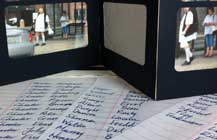His gut canted, and something in his chest hung empty. He flung a dose of milk down his throat to slake it. The outer door squeaked open half a foot, but no one was there. His nerves jumped, and he grasped the booth seat with shaking fingers. He knew better than to believe in ghosts, but something evidently wanted in. Wind looped to sting his bare ankles, frost on the draft. Dank linoleum sopped up light sloping down from old overhead fixtures. The stitch in his belly hitched a notch tighter.
It seemed but a blink since Celia’d been a pup, all soft and rubbery, mouthing her toy bat and growling like a beast of prey until they fairly sang with laughter. He’d burnt her carcass earlier that evening in a pile of brush out back of the shed, the form of her flaring up impossibly bright and finally collapsing inward. He’d sidestepped the smoke and wept right out loud. When his tongue strayed, he still tasted salt.
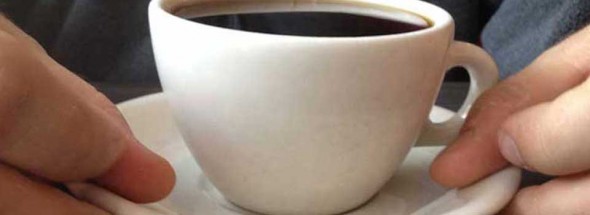 Doris had scolded. She’d dearly craved a burial, just for the ceremony of the thing. But the illness that took the dog was quick and vicious, and he didn’t want to run the risk of contagion. Not that it was likely to jump species, but these days who knew, what with mad cows and bird flu. So he’d built up a dry pyre and lain her on it lovingly, like he was laying her down on a featherbed. And then he’d struck the match.
Doris had scolded. She’d dearly craved a burial, just for the ceremony of the thing. But the illness that took the dog was quick and vicious, and he didn’t want to run the risk of contagion. Not that it was likely to jump species, but these days who knew, what with mad cows and bird flu. So he’d built up a dry pyre and lain her on it lovingly, like he was laying her down on a featherbed. And then he’d struck the match.
It wasn’t his regular night for pie, but he’d needed to get away. Doris and Mother had been all over him, going on about the Clarks’ new shih tzu, how cute it was, and didn’t he think it’d be nice to have a little lapdog around the house. He could just see them, too, sitting there in their matching recliners, taking turns feeding treats to the fat little thing while they watched their afternoon stories. No, he wouldn’t countenance it. Celia had been family.
Tonight was French Silk. Ordinarily he was an apple or cherry man– Sundays and Wednesdays– with a cold glass of two percent. But here it was Saturday, so chocolate and cream. He knew that coffee would go best, but he’d be damned if he’d be up all hours. On second thought, why not– he still had some work to do on the new farm out SR35 on the model. When Carly looked up, he made a little sign like a tipping pot.
“Hey, Chester. How’s Celia?”– the question barely out before she saw his face crumple. “Oh, god. I’m so sorry.”
She busied herself with pouring coffee and checking the creamer while he mumbled, “Thanks.”
He cleared his throat. “Um. You know that photo shoot you did last fall? Think I could have some of the prints?”
“Sure. Of course. Let me just see what I’ve got. I can let you know tomorrow, okay?”
“That’d be just fine.”
Back when the leaves had been turning bright yellow and red, she’d come out to the house and taken a slew of photos of the lab prancing around the yard. Carly called them motion studies for one of her mural projects. Celia, just seven and still full of zip, had cavorted about, flinging the tennis ball Carly had brought out like it was the best, most novel thing ever. Not like there weren’t already a dozen such scattered around the house, rolled under chairs and wedged into corners of his workroom– but this one was new. Plus Carly had brought it just for her; it was a present and therefore of utmost excitement.
That afternoon was preserved as a mental image tinged with autumnal gold, and he sincerely doubted Carly’s black and white snapshots could improve on it. Still, they’d show the dog he’d so adored, alive and romping, so he could hardly wait to lay hands on them.
“I appreciate it,” he said, just to be sure Carly knew he did.
On her way back behind the counter Carly jack-knifed in her tracks and went and secured the banging door.
He had been right about the coffee: it settled what the milk had failed to quell, all that sugary froth of cream and chocolate. And as he thought about holding those photos in his hands, his sternum warmed. The sense of something wanting lightened just a touch.
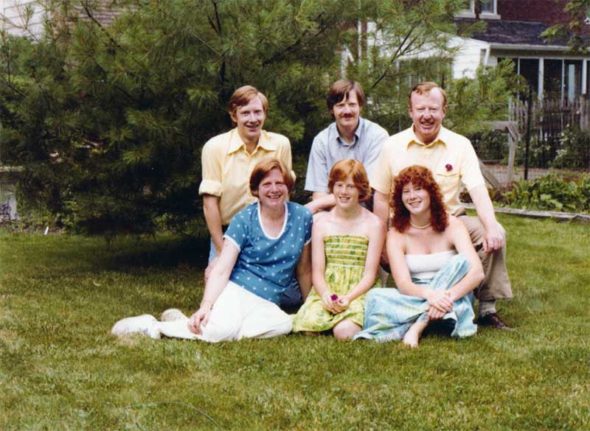
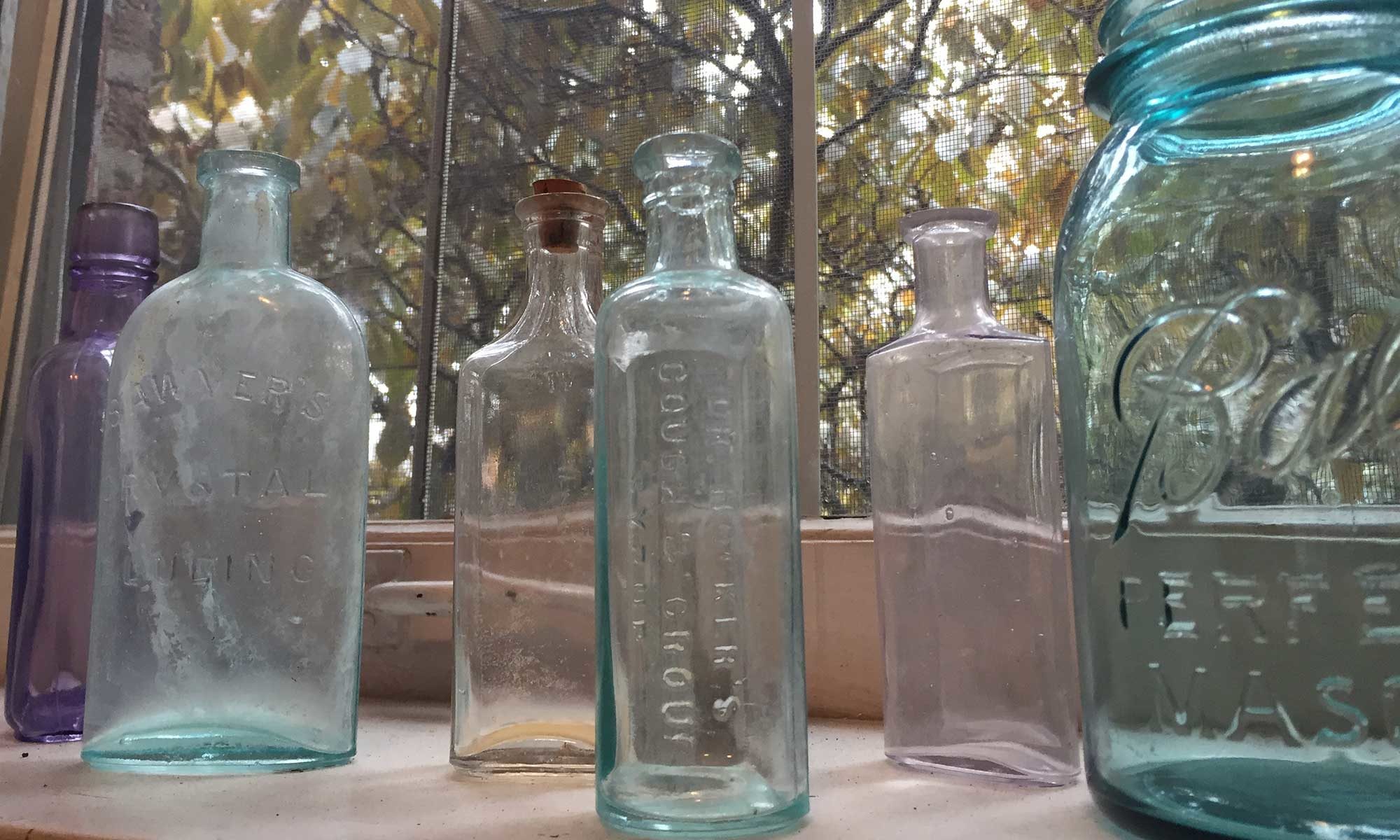
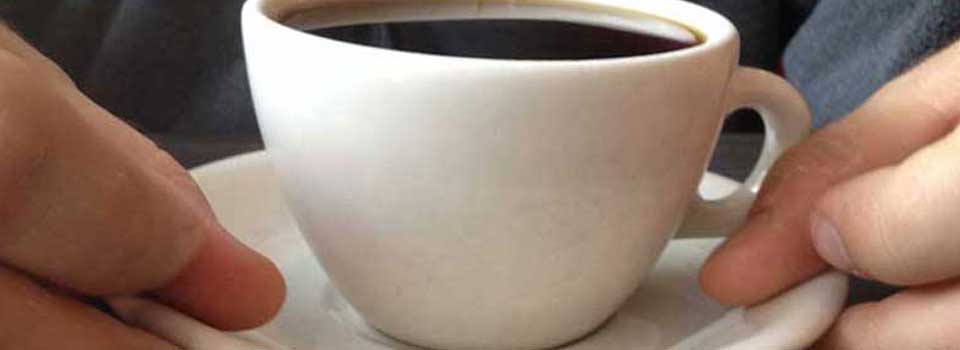
 Doris had scolded. She’d dearly craved a burial, just for the ceremony of the thing. But the illness that took the dog was quick and vicious, and he didn’t want to run the risk of contagion. Not that it was likely to jump species, but these days who knew, what with mad cows and bird flu. So he’d built up a dry pyre and lain her on it lovingly, like he was laying her down on a featherbed. And then he’d struck the match.
Doris had scolded. She’d dearly craved a burial, just for the ceremony of the thing. But the illness that took the dog was quick and vicious, and he didn’t want to run the risk of contagion. Not that it was likely to jump species, but these days who knew, what with mad cows and bird flu. So he’d built up a dry pyre and lain her on it lovingly, like he was laying her down on a featherbed. And then he’d struck the match.